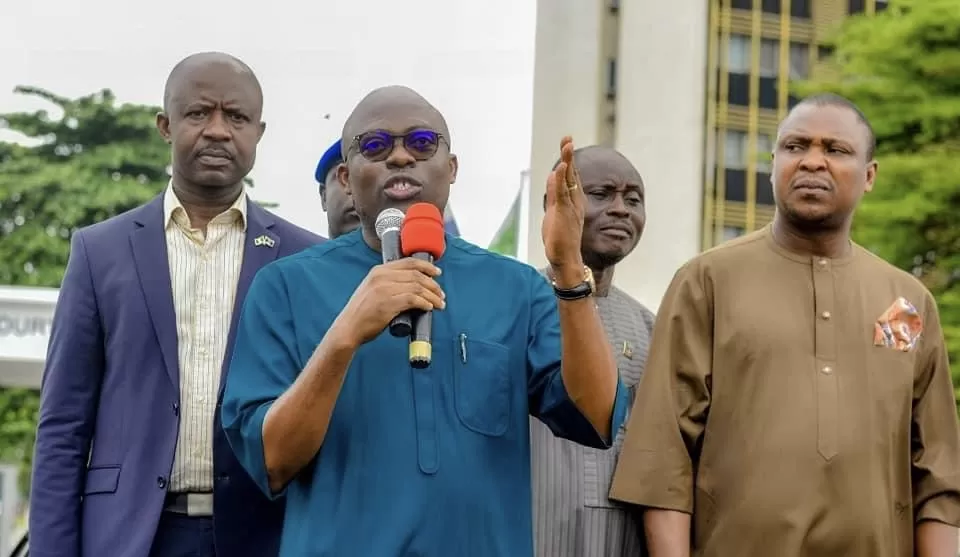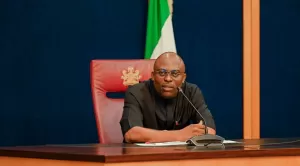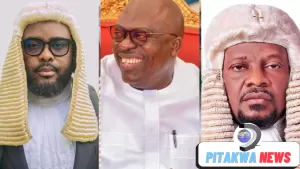We Don’t Need Your Security, We Would Provide Our Own Security, Gov Fubara Slams Federal Government and IG

Governor Siminalayi Fubara of Rivers State has publicly criticized the Federal Government and the Inspector General of Police (IG) over security issues, asserting that Rivers State would handle its own security measures independently. This statement reflects a broader tension or disagreement over how security should be managed within the state, possibly indicating a lack of confidence in the federal approach or a desire for more localized control over security operations.
Historically, the relationship between state governments and the federal government in Nigeria regarding security can be quite complex. While the police, being a federal institution, are primarily responsible for maintaining law and order nationwide, there have been numerous calls for state police forces due to perceived inefficiencies or lack of responsiveness from the federal police in addressing local security issues.
Governor Fubara’s stance could be seen in light of several factors:
- Local Autonomy: There’s an ongoing debate in Nigeria about granting more autonomy to states, including in security matters. Some argue that local control could lead to more effective security measures tailored to regional issues.
- Political Posturing: Such statements might also serve political purposes, either to rally local support by appearing decisive against perceived federal inaction or to negotiate better terms or support from the federal government.
- Security Challenges: Rivers State, like many parts of Nigeria, faces its unique security challenges, including cultism, kidnapping, and political violence. Local leaders might feel more equipped or motivated to address these issues directly.
- Federal vs. State Powers: This also touches on the constitutional debate over how powers are divided between the federal and state governments in Nigeria, especially concerning security, which has often been a point of contention.
However, implementing state-level security measures without coordination or in opposition to federal frameworks could lead to legal complexities, operational challenges, or even conflicts if not handled with careful negotiation and possibly legal reform.
From the information available up to October 3, 2024, there hasn’t been explicit detail on how Governor Fubara plans to execute this autonomous security approach, whether through legal channels like advocating for state police or through other means like enhancing local vigilante groups or community policing efforts under state oversight.
This situation underscores a recurring theme in Nigerian federalism: the balance between central control and state autonomy, particularly poignant in matters of security where immediate local needs often clash with broader national policies or capabilities.







